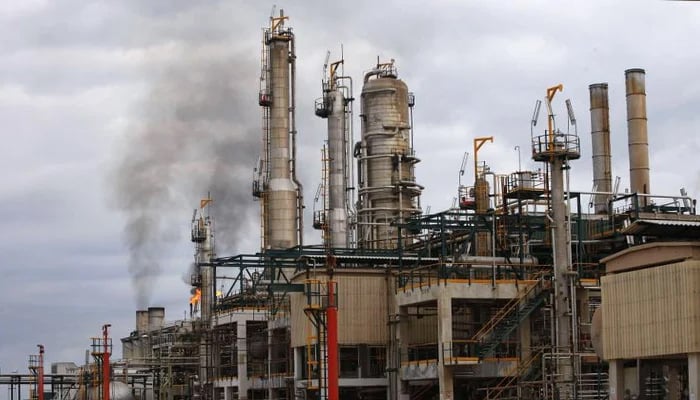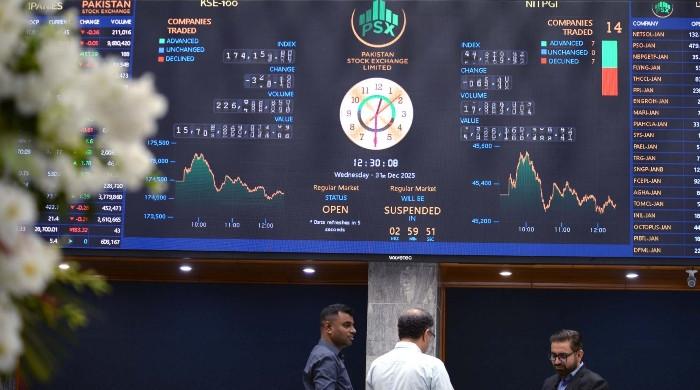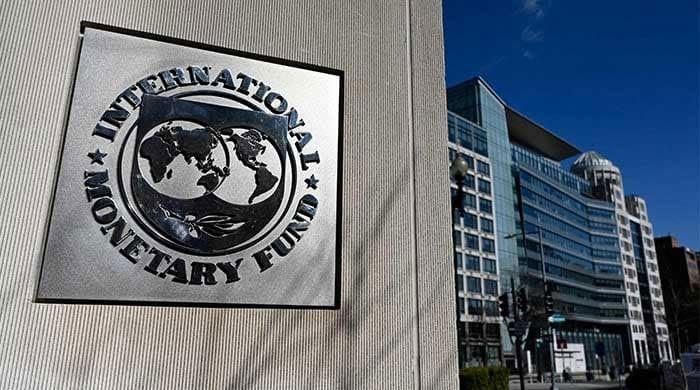Refineries' margins drop to lowest quarterly in two years amid weak demand
Local GRMs, lower than historical norm insufficient to cover processing costs in current quarter
August 09, 2023

- Refineries may benefit from inventory gains after GRMs recovery.
- Global crude and product markets show divergent trend.
- Analyst says industry faced challenges due to rupee depreciation.
KARACHI: The refiners' gross refining margins (GRMs) dropped to the lowest quarterly level in two years, amounting to an average of $4 per barrel in the last quarter of the current fiscal year, The News reported.
As per the report, the decline was a result of a weak demand for refined products in domestic market.
The GRMs, which measure the difference between the price of crude oil and the price of refined products, peaked at $22 per barrel in the same period last year, when there was a fuel supply constraint as a result of the Ukraine-Russia war.
Local GRMs that are lower than the historical norm are insufficient to cover processing costs in the current quarter. Refineries will be unable to recover processing expenses and may incur losses with average local industry GRMs of $4 per barrel.
Analysts said the outlook for the current fiscal year, however, is promising, as GRMs have recovered slightly and local refineries may benefit from inventory gains.
“FY24 seems to be a better year for local refineries, as GRMs have improved and there are chances of significant inventory gains due to rising crude oil prices,” said Farhman Mahmood, an analyst at Sherman Securities.
Mahmood said company-wise GRMs may vary depending on the product mix, and that refineries need GRMs above $5-6 per barrel to operate in profits.
In the quarter under review, global crude and product markets showed a divergent trend, with Arab Light crude oil prices falling by 3% while major product prices dropped by 4%-25% in US dollar terms.
Diesel and jet fuel, which account for around 49% of the product slate of local refineries, saw a sharp decline in their spreads over crude oil, indicating lower demand for these products.
The spread on diesel fell to around $14 per barrel from $30 per barrel in the previous quarter, while the spread on jet fuel dropped to around $17 per barrel from $46 per barrel.
Mahmood said the industry also faced challenges due to the rupee depreciation, which shrunk their credit limits and led to exchange losses. The rupee devalued by 9% against the US dollar in the quarter under review.
The local refineries struggled with low lifting of furnace oil by the power plants, which hampered their smooth operations. Furnace oil constitutes around 25% of the overall production mix of local refineries, he added.











